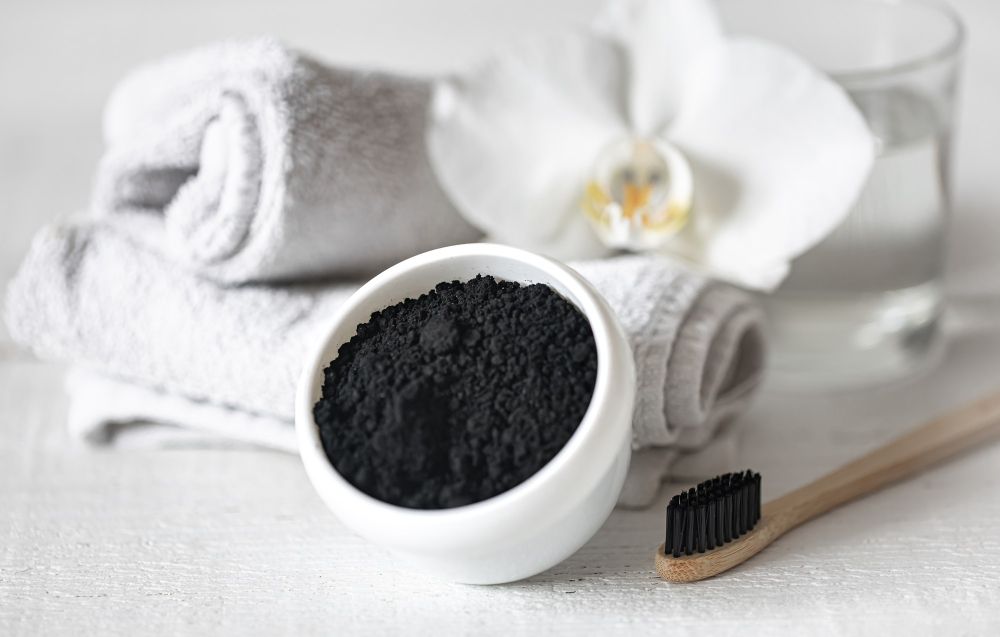
Charcoal Teeth Whitening: Unveiling the Secrets

In the quest for a radiant and confident smile, charcoal teeth whitening has emerged as a trending oral care practice. The use of activated charcoal to whiten teeth has gained popularity for its purported ability to lift stains and brighten smiles naturally. In this article, we'll explore the concept of charcoal teeth whitening, its benefits, and considerations to help you achieve a whiter, brighter smile.
**1. Activated Charcoal: The Whitening Agent
Activated charcoal, a form of carbon processed to have small, low-volume pores, is the key ingredient in charcoal teeth whitening products. Its porous nature allows it to bind to substances, including stains on the teeth, making it a popular choice for natural teeth whitening.
Understanding Activated Charcoal:
**Absorbent Power:
Activated charcoal is renowned for its exceptional absorbent capabilities. The microscopic pores in its structure allow it to bind to substances, making it effective in trapping and removing impurities, including stains on the surface of teeth.
**Natural Origin:
Derived from natural sources such as coconut shells, wood, or peat, activated charcoal is a product of controlled heating processes. This natural origin aligns with the growing trend of embracing organic and minimally processed materials in personal care products.
**Stain Removal Mechanism:
Therefore, When used in oral care, activated charcoal is believed to work by adsorption—the process of particles sticking to the surface. It binds to stains and toxins on the teeth, contributing to the removal of discoloration caused by factors like coffee, tea, or certain foods.
**Versatile Application:
However, Activated charcoal's versatility extends beyond teeth whitening. It is a common ingredient in various skincare products, known for its ability to draw out impurities. Its widespread use showcases the confidence consumers have in its potential benefits.
**2. Stain Removal: A Natural Approach
Charcoal's absorbent properties are harnessed to remove stains from the surface of teeth. Therefore, Whether caused by coffee, tea, red wine, or other pigmented foods, activated charcoal is believed to bind to these stains, lifting them away and revealing a brighter tooth surface.
**3. Safe Usage: Guidelines to Follow
Therefore, While charcoal teeth whitening is considered safe for most people, it's essential to follow guidelines for usage. Use only products specifically designed for oral care, as these are formulated with fine particles suitable for teeth. Avoid using homemade charcoal mixtures, as coarse particles may damage tooth enamel.
**4. Tooth Sensitivity: A Consideration
Therefore, Individuals with tooth sensitivity may want to approach charcoal teeth whitening with caution. Some people may find that prolonged use of charcoal products leads to increased tooth sensitivity. If you have sensitive teeth, consult with a dentist before incorporating charcoal into your oral care routine.
**5. How to Use: Step-by-Step Guide
To use charcoal teeth whitening products effectively, follow these steps:
a. Wet a toothbrush and dip it into the charcoal powder or apply charcoal toothpaste. b. Gently brush your teeth for 2-3 minutes, ensuring coverage of all surfaces. c. Spit out the charcoal and rinse your mouth thoroughly. d. Brush your teeth with regular toothpaste to remove any charcoal residue.
**6. Frequency of Use: Moderation is Key
However, While charcoal teeth whitening can be effective, moderation is key. Overuse may lead to abrasive effects on tooth enamel. Most dentists recommend using charcoal products 2-3 times a week at most to achieve optimal results without risking damage to the teeth.
**7. Complementary Oral Care: Maintain Overall Health
However, Charcoal teeth whitening is most effective when integrated into a comprehensive oral care routine. This includes regular brushing with fluoride toothpaste, flossing, and routine dental check-ups. A holistic approach ensures not only a whiter smile but also overall oral health.
**8. Results and Expectations: Patience is Virtue
Therefore, Results from charcoal teeth whitening may vary from person to person. While some individuals may notice a difference after a few uses, others may require more time. Patience is essential, and consistent use over several weeks may yield gradual but noticeable improvements.
**9. Caution for Certain Individuals: Consult a Dentist
However, Pregnant or breastfeeding individuals and those with existing oral health issues should consult with a dentist before using charcoal teeth whitening products. It's crucial to ensure that the chosen products align with individual health considerations.
**10. Alternatives to Charcoal: Professional Whitening Options
For those seeking alternatives to charcoal whitening, professional options are available. In-office teeth whitening procedures, at-home whitening kits recommended by dentists, and over-the-counter whitening products with enamel-safe ingredients provide additional choices for achieving a brighter smile.
Conclusion: A Radiant Smile with Charcoal
It has captured the attention of individuals seeking a natural approach to achieve a brighter smile. With its stain-removing properties and widespread availability in oral care products, charcoal has become a popular choice. Remember to use these whitening products in moderation, consult with a dentist if needed, and maintain a comprehensive oral care routine for optimal results. A radiant smile awaits those who embark on the journey of charcoal whitening, embracing the potential of activated charcoal to unveil a brighter and more confident grin.
FAQs:
Can charcoal teeth whitening be used by people with sensitive teeth?
Individuals with sensitive teeth should approach charcoal teeth whitening with caution. It's advisable to consult with a dentist before incorporating charcoal products into their oral care routine to minimize the risk of increased tooth sensitivity.
How often should charcoal teeth whitening products be used?
This product should use in moderation. Most dentists recommend using them 2-3 times a week at most to avoid potential abrasive effects on tooth enamel. Consistent but limited use over time may yield gradual and noticeable improvements.
Are there alternatives to charcoal teeth whitening for achieving a brighter smile?
Yes, there are alternatives to charcoal whitening. Professional options include in-office teeth whitening procedures and at-home whitening kits recommended by dentists. Over-the-counter whitening products with enamel safe ingredients also provide alternative choices for achieving a brighter smile.
Appreciate the creator